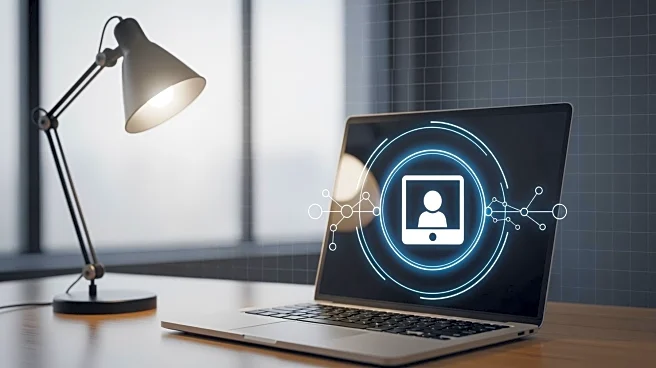What's Happening?
A Brooklyn jury has ruled that National Grid must pay $3.1 million to two former employees, Luciano Russo and George Messiha, for denying their requests to continue working remotely after the COVID-19
pandemic. The jury found that the utility company violated the Americans with Disabilities Act and state and city human-rights laws by not allowing the two emergency-gas dispatchers to maintain their telework schedules, which they argued were necessary to manage their medical conditions. During the pandemic, National Grid had permitted all dispatchers to work from home, but later transitioned to a hybrid schedule. The company eventually denied the continued remote work requests of Russo and Messiha, leading them to file a federal lawsuit in 2023. The jury awarded the plaintiffs punitive damages, back pay, and compensation for emotional distress.
Why It's Important?
This ruling is significant as it sets a potential precedent for telework being recognized as a reasonable accommodation under disability laws. The decision could influence how companies handle remote work requests from employees with disabilities, especially in the context of post-pandemic work arrangements. Employers may need to reassess their policies to avoid similar legal challenges, potentially leading to broader acceptance of remote work as a standard accommodation. The case highlights the ongoing tension between traditional workplace expectations and the evolving norms of remote work, which have been accelerated by the pandemic. Companies that fail to adapt may face legal and financial repercussions, as demonstrated by the substantial damages awarded in this case.
What's Next?
National Grid has expressed its intention to challenge the verdict, indicating that the legal battle may continue. The company aims to ensure a resolution that aligns with its operational safety and customer service commitments. This case may prompt other businesses to review their remote work policies and disability accommodations to prevent similar disputes. Legal experts and disability advocates will likely monitor the outcome of any appeals closely, as it could further define the legal landscape regarding remote work accommodations. Additionally, the case may encourage more employees to assert their rights under disability laws, potentially leading to increased litigation in this area.










